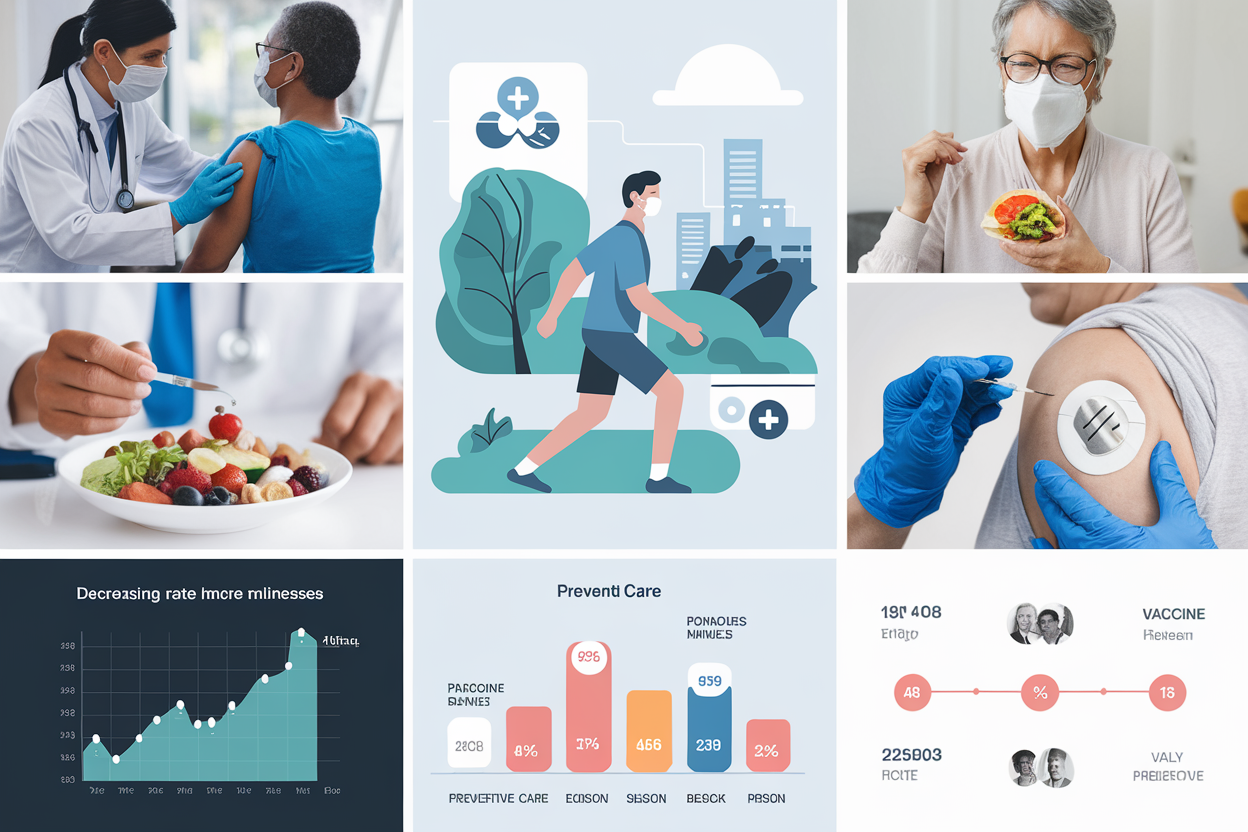Preventive Care: Your First Line of Defense for Optimal Health
Preventive care is a cornerstone of modern healthcare, emphasizing the proactive management of health to prevent diseases and maintain overall well-being. By focusing on preventive care, individuals can significantly reduce their risk of chronic illnesses, improve their quality of life, and even extend their lifespan. This article delves into the importance of preventive care, its various components, and how to integrate it into your daily routine.
Table of Contents
Understanding Preventive Care
Preventive care encompasses a wide range of practices and services aimed at preventing diseases and promoting health. These include regular check-ups, screenings, immunizations, and lifestyle modifications. The goal is to identify potential health issues early when they are easier and less costly to treat and to encourage healthy habits that can prevent illnesses from occurring in the first place.
Types of Preventive Care
Preventive care can be categorized into several types, each playing a crucial role in maintaining health:
- Primary Preventive Care: This focuses on preventing diseases before they occur. Examples include vaccinations, healthy eating, regular exercise, and avoiding harmful substances like tobacco and excessive alcohol.
- Secondary Preventive Care: This involves early detection and treatment of diseases. Regular screenings, such as mammograms, colonoscopies, and blood pressure checks, fall under this category.
- Tertiary Preventive Care: This aims to manage existing health conditions to prevent them from worsening. Examples include rehabilitation programs for stroke patients and ongoing management of chronic diseases like diabetes.
The Importance of Preventive Care
Preventive care is essential for several reasons:
- Early Detection: Many diseases, such as cancer and heart disease, can be detected early through screenings. Early detection often leads to better treatment outcomes and higher survival rates.
- Cost-Effectiveness: Preventive-care can save significant healthcare costs in the long run. Treating diseases in their early stages is generally less expensive than managing them once they have progressed.
- Quality of Life: By preventing diseases and managing health conditions effectively, individuals can enjoy a higher quality of life, free from the debilitating effects of chronic illnesses.
- Longevity: Regular preventive-care can extend lifespan by reducing the risk of life-threatening conditions and promoting overall health.
Integrating Preventive Care into Your Life

Regular Check-Ups and Screenings
One of the most effective ways to practice preventive-care is through regular check-ups and screenings. These visits allow healthcare providers to monitor your health, identify potential issues, and provide timely interventions. Common screenings include:
- Blood Pressure Checks: High blood pressure is a silent killer, often showing no symptoms until it causes serious damage. Regular blood pressure checks can help detect and manage hypertension.
- Cholesterol Screenings: High cholesterol levels can increase the risk of heart disease. Regular screenings can help monitor and manage cholesterol levels.
- Cancer Screenings: Screenings for various types of cancer, such as breast, colon, and prostate cancer, can detect the disease early when it is most treatable.
Immunizations
Vaccinations are a critical component of preventive-care. They protect against a wide range of infectious diseases, from childhood illnesses like measles and mumps to more serious conditions like influenza and pneumonia. Staying up-to-date with recommended vaccinations can significantly reduce the risk of contracting these diseases.
Healthy Lifestyle Choices
Making healthy lifestyle choices is another essential aspect of preventive-care. This includes:
- Balanced Diet: Eating a diet rich in fruits, vegetables, whole grains, and lean proteins can help maintain a healthy weight and reduce the risk of chronic diseases.
- Regular Exercise: Physical activity is crucial for maintaining cardiovascular health, managing weight, and improving mental well-being. Aim for at least 150 minutes of moderate-intensity exercise per week.
- Avoiding Harmful Substances: Limiting or avoiding tobacco, excessive alcohol, and illicit drugs can significantly reduce the risk of various health conditions, including cancer, heart disease, and liver disease.
Mental Health
Preventive-care also extends to mental health. Regular check-ins with a mental health professional, stress management techniques, and maintaining social connections can help prevent mental health issues and promote overall well-being.
Preventive Care for Different Age Groups

Preventive care needs vary depending on age and life stage. Here are some guidelines for different age groups:
Children and Adolescents
- Vaccinations: Ensure children receive all recommended vaccinations to protect against infectious diseases.
- Regular Check-Ups: Regular pediatric visits can monitor growth, development, and overall health.
- Healthy Habits: Encourage healthy eating, regular exercise, and good sleep habits from an early age.
Adults
- Screenings: Regular screenings for conditions like high blood pressure, cholesterol, and cancer are essential.
- Healthy Lifestyle: Maintain a balanced diet, regular exercise, and avoid harmful substances.
- Mental Health: Pay attention to mental health and seek help if needed.
Seniors
- Regular Check-Ups: Frequent check-ups can help manage chronic conditions and detect new health issues early.
- Vaccinations: Stay up-to-date with vaccinations, including those for influenza and pneumonia.
- Healthy Lifestyle: Continue to maintain a healthy diet, regular exercise, and mental well-being.
The Role of Healthcare Providers in Preventive Care
Healthcare providers play a crucial role in promoting preventive-care. They can:
- Educate Patients: Provide information on the importance of preventive-care and how to integrate it into daily life.
- Screenings and Check-Ups: Offer regular screenings and check-ups to monitor health and detect issues early.
- Personalized Care Plans: Develop personalized care plans that address individual health needs and risks.
Conclusion
Preventive-care is not just a buzzword; it is a proactive approach to healthcare that can significantly improve health outcomes. By focusing on regular check-ups, screenings, immunizations, and healthy lifestyle choices, individuals can reduce their risk of chronic diseases, improve their quality of life, and extend their lifespan. Embracing preventive care is a smart investment in your health and well-being.
Incorporating preventive-care into your daily routine is a step towards a healthier, happier life. Whether you are a child, adult, or senior, there are preventive care practices tailored to your needs. Take the first step today and prioritize your health with preventive-care.
it is a proactive approach to healthcare that can significantly improve health outcomes
there are preventive care practices tailored to your needs. Take the first step today and prioritize your health with preventive-care.







